Three movies that would never exist without Košice
Even though one can think that Bratislava is the so-called Hollywood of Slovakia, it is not entirely true. In fact, Košice inclines to cinematography. Whether we talk about festivals Jeden svet and Art Film Fest, Kino Úsmev, numbers of students’ or feature movies, big or small movie stars forming the silver screen in the Central European region, we can say Košice produces quality and distinctiveness. Let’s take a closer look at three movies that were created thanks to the artistic base in Košice, and every citizen of this city should see them at least once in a lifetime.
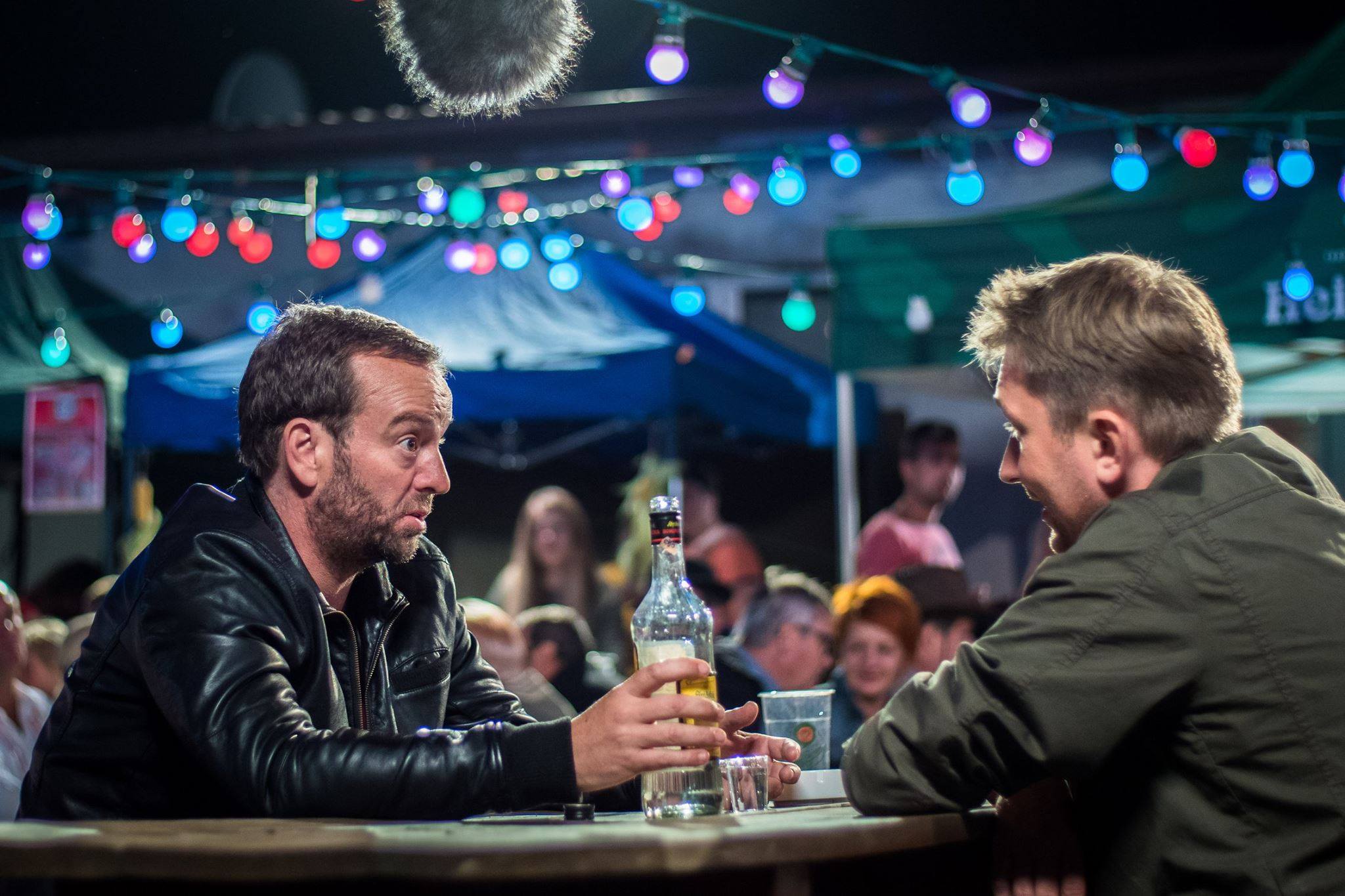
© Staviarsky 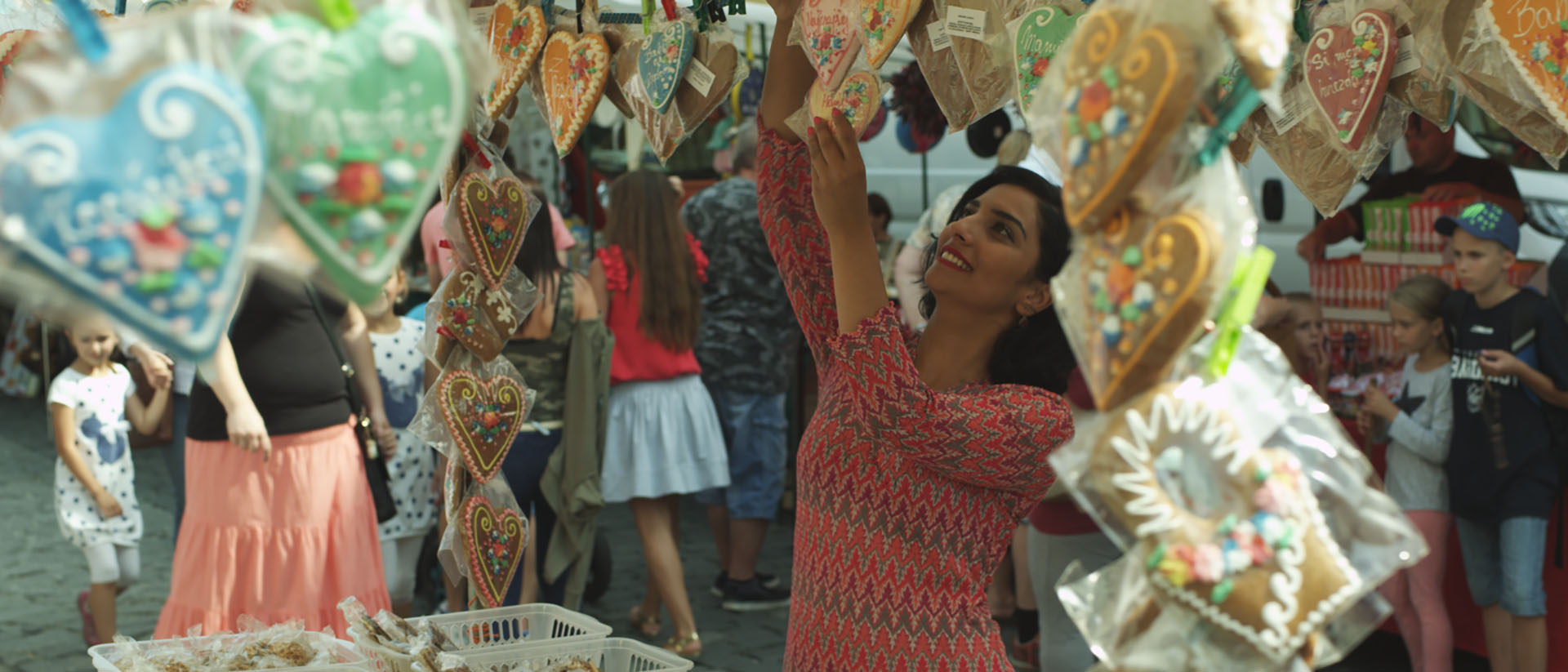
© Staviarsky
Loli Paradička
(2019, Víťo Staviarsky a Richard Staviarsky)
Love, East, money! is the subtitle of the movie, which has become a legend since its premiere week. Directorial duo Rišo and Víťo Staviarski have shown us that by combining a laureate of the Anasoft litera award with a YouTuber, you are able create an entertaining movie with a more profound overlap. Loli Paradička has brought back the Šariš dialect, the taste and smell of summer in the Eastern part of Slovakia, and many popular catch-phrases. Even though the movie is located in the surrounding of Sabinov, more things connect it with Košice than one could think of at first. From Michal Soltész, the star of State Theater Košice who did a fantastic job in acting the role of Jožko, to considerate help of Film school Košice, Woont Studio, RTVS studio Košice, Art Film Fest or Tabačka. To add, femme fatale of the movie Kamila Mitrášová attends conservatory in Košice. These are the reason we can be truly proud to help one of the most seen movies in Slovakia to be created.
Film as such is a sensitive story about human misfortune and happiness. It talks about the vulnerable ones without pathos but with kind humor and a bit of irony, which are so typical for Víťo. Loli Paradička is a summer comedy and a depicture of the Eastern soul and a small piece of home to those who know where they come from!
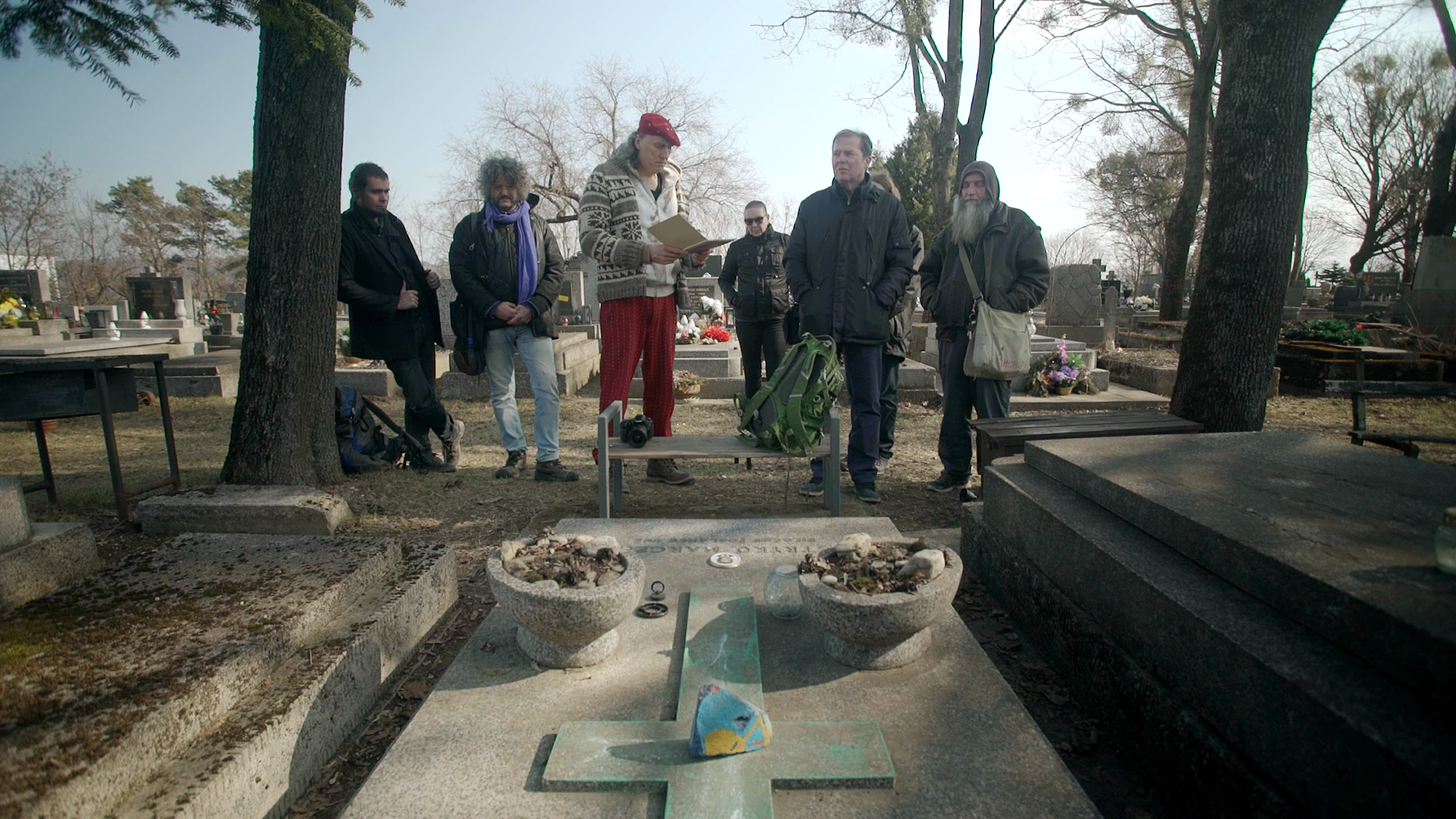
© Association of Slovak film clubs 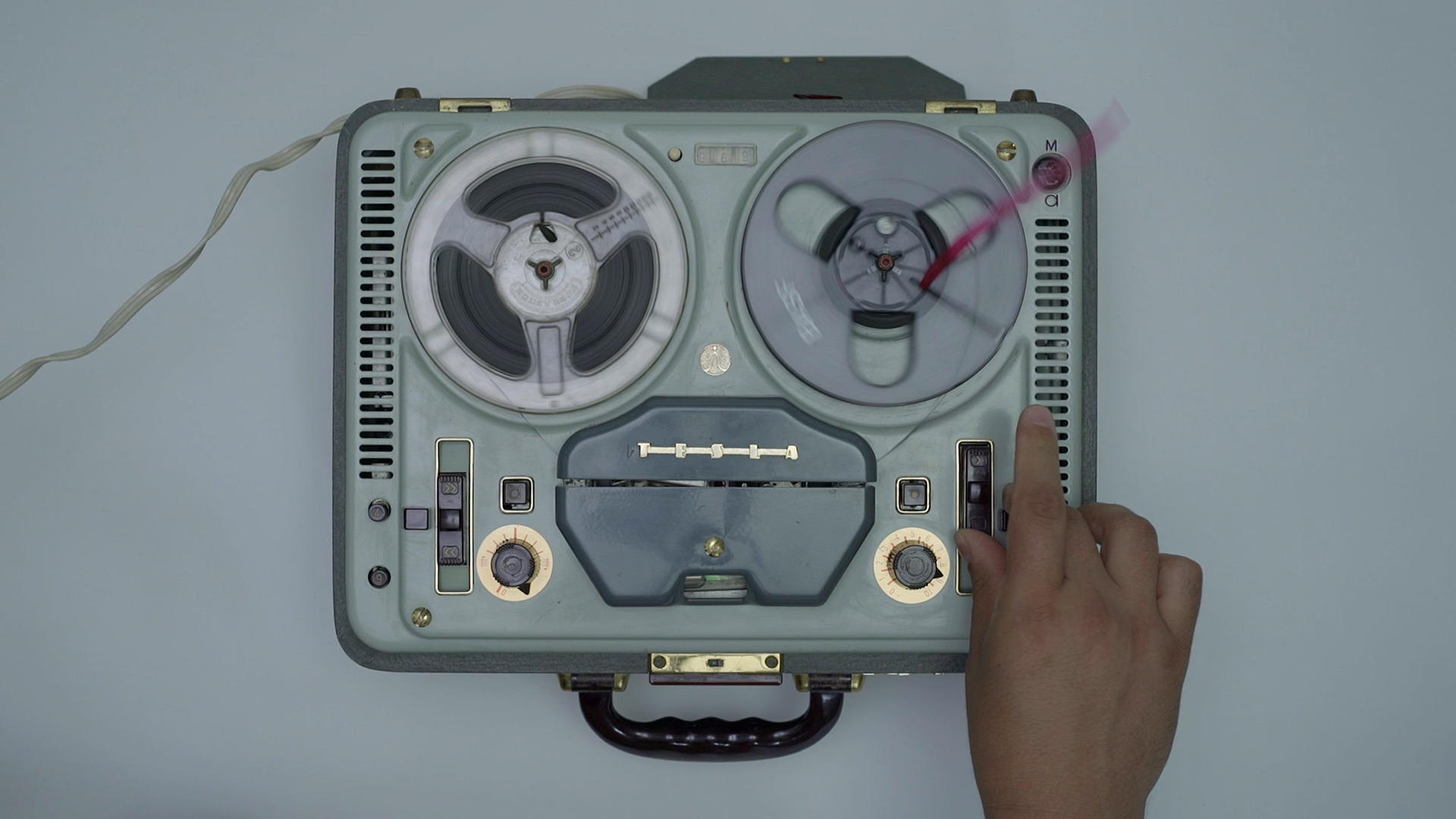
© Association of Slovak film clubs
Komúna
(2020, Jakub Julény)
“Some people act like dissent in Slovakia wouldn’t even exist,” writes a dissident Ivan Kadlečík in one of the letters to Rút Lichnerová. This sad message has survived until these days, and the fact that the western neighbors are more interested in our rebels than us is even more tragic.
The film of Jakub Julény Komúna is one of a few exceptional movies that try to keep the memory of our heroes alive. An excellently cut documentary with a creative visual side tells a story of a commune grouped around an artist, philosopher, painter, and revolutionary politician Marcel Strýko. Strýko, together with Bondy, Patočka, or Ján Sokol, belonged to anti-regime philosophers who decided to fight for liberty with spirit, art, and wisdom. His essay Medzi smrťou a lžou (Between the Death and Lie) is an important text that creates a disputation in Czeck atheism and Slovak religious tradition. In one point of view, it is as crucial as the book Války 20. Století a 20. Století jako válka (Wars of the 20th Century and the 20th Century as War) by Patočka.
Commune around Strýko was an absolute hint of liberty in times of totality. Its members formed a really diverse group that addressed every topic, such as the beat generation did – from the experimenting with psychedelic drugs, Eastern philosophies, ecology to art. Because of it, the Czech dissidents called us San Francisco of Czechoslovakia (Prague was New York, of course) in a Kerouac style. In case you are interested in the history of liberty, resistance, or spiritual exploration, Komúna is a movie you should definitely see. It’s a must for every person who thinks there is no democratic tradition and all we have in Slovakia is just thanks to “good totalitarian regimes.”
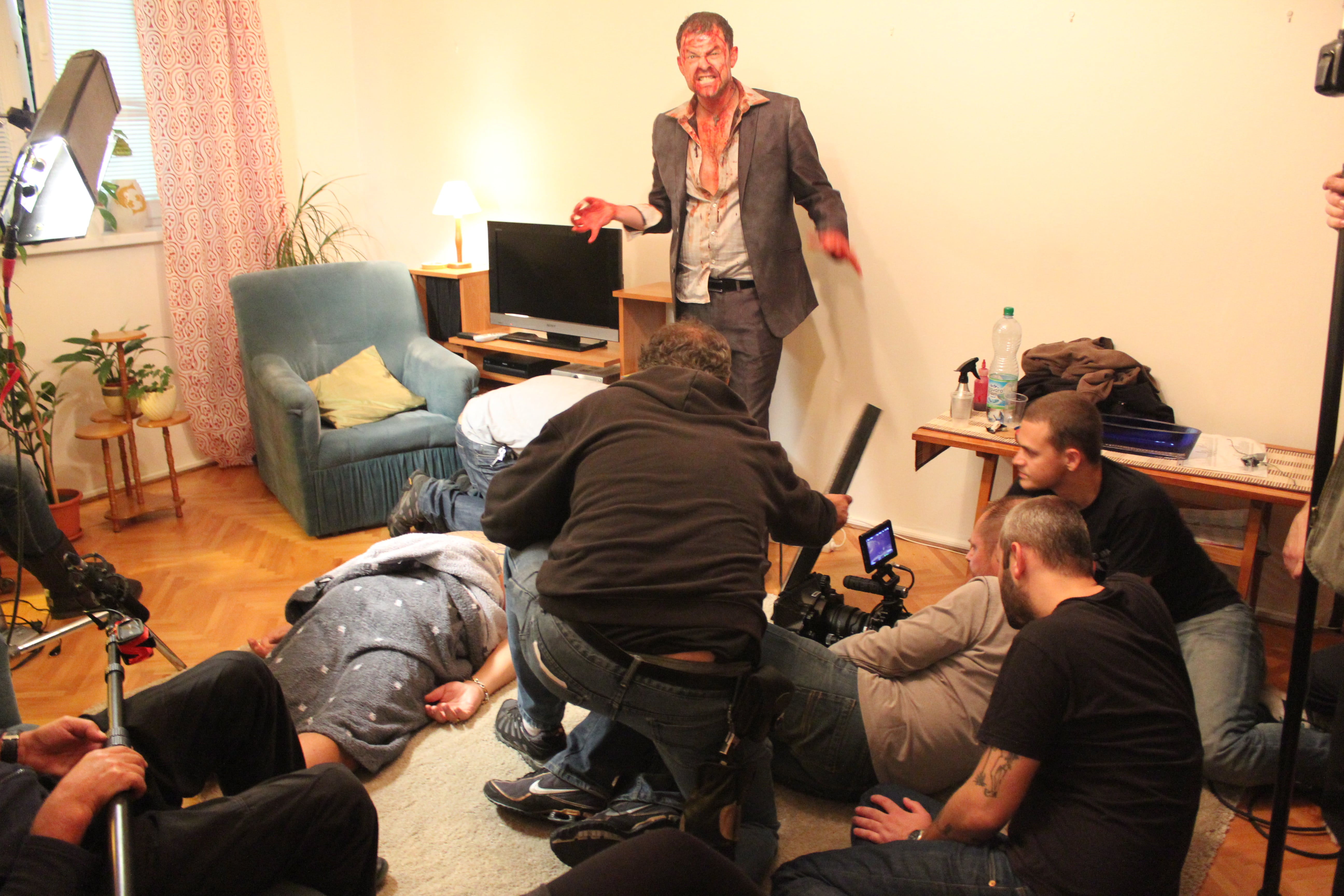
© Alef Film & Media / Slovak Motion Picture 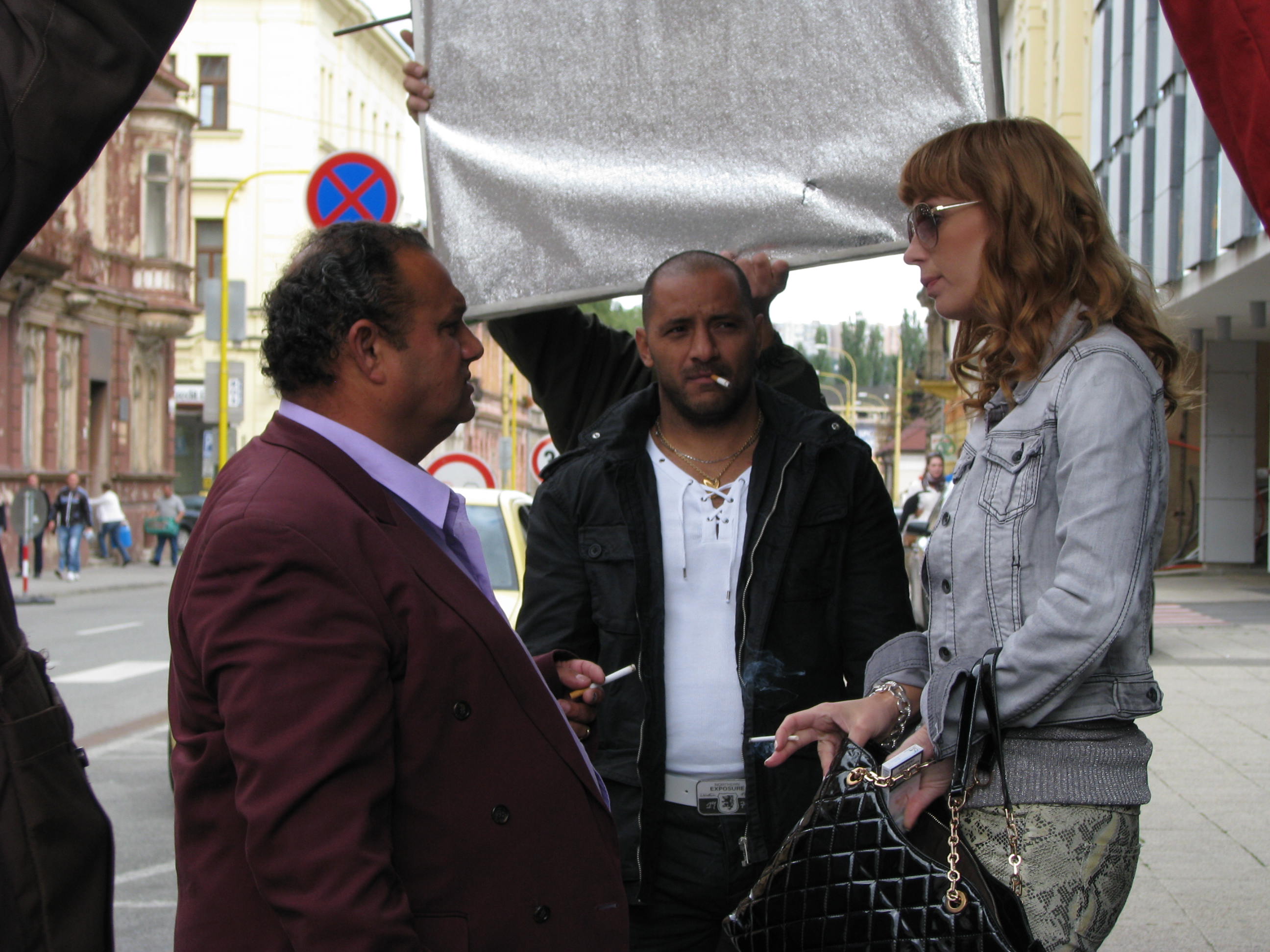
© Alef Film & Media / Slovak Motion Picture
Babie Leto
(2013, Gejza Dezorz)
The oldest movie on the list is Babie Leto (Indian Summer), which is more or less a successful attempt to create a Slovak Tarantino movie. It is based on a cult book Koniec sveta (The end of the world), by Agda Bavi Pain. Pain was awarded several prestigious awards for the book and its screenplay, but the movie itself didn’t receive any. However, it is unique not only because of the topic it covers but also because it took only fifteen days to shoot it. The movie refers to book and theater predecessors, mainly the book Rivers of Babylon by Pišťanka and a play English is Easy, Csaba is dead by Vosátka. Even though it is not as legendary as them, it is still worth seeing.
So what is the plot about? Biely (Alexander Bárta) returns to Košice after years spent in prison, driven by the desire for blood and revenge. Post-production of Babie leto is done in the way of a video game in which Biely kills members of the mafia and criminals on all levels until he gets to the finals boss of it all. It is full of vulgarism, a dialect from Košice, Hungarian and Roma language, and an authentic feeling of Košice in the 90s. You should definitely watch this movie if you favor Tarantino movies, as well as classics like Godfather or Leon. Babie Leto is one of a few action movies that force you to sit on the edge of the chair and, full of adrenaline, await what happens next.
